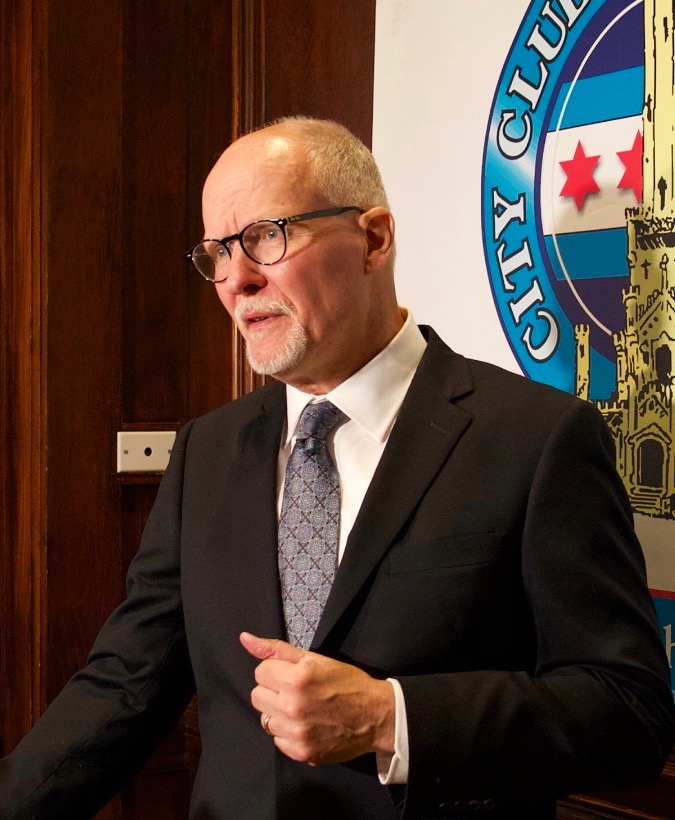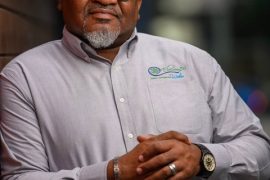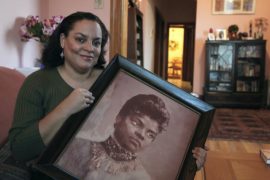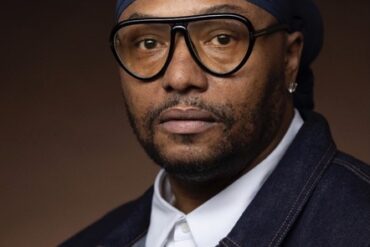Paul Vallas was born and raised in a Greek-American household in the Roseland community on Chicago’s South Side. Chicago is where his career began. After a long and bumpy academic trajectory, Paul graduated from Western Illinois University and went on to immerse himself in the fiscal and economic wellbeing of the state and later the city, as Revenue and then Budget Director.
When he married his wife, Sharon, a former police officer in the southwest suburbs, they settled in the Beverly neighborhood of Chicago, where they raised their three boys.
Paul’s commitment to the city deepened further when he became the CEO of Chicago Public Schools. Paul has also been hired to run educational systems in Philadelphia, New Orleans (after Hurricane Katrina) and in Haiti after its devastating earthquake. Paul says that Chicago is in crisis and that he wants to make Chicago safe and affordable for everyone.
N’DIGO sat with Vallas recently and discussed his quest to become Mayor of Chicago.
N’DIGO: Complete this sentence…I would like to be Mayor of the City of Chicago because…
Paul Vallas:…This city is in a severe financial crisis, which is having an adverse impact on the quality of life, growth, and prosperity of life in the city. That financial impact is adversely impacting public safety, the quality of the schools, the city’s infrastructure – including citizens’ access to lead-free water – jobs and economic opportunities for a majority of its residents, affordable housing, and is driving up taxes and fees that makes the city unaffordable for an increasing number of working families.
The city needs a mayor who can correct that and can develop a financial plan that gets the city out of its financial crisis while making the critical investments in public safety, education, and economic opportunities needed to reverse the aforementioned problems I identified and allow all communities to prosper.
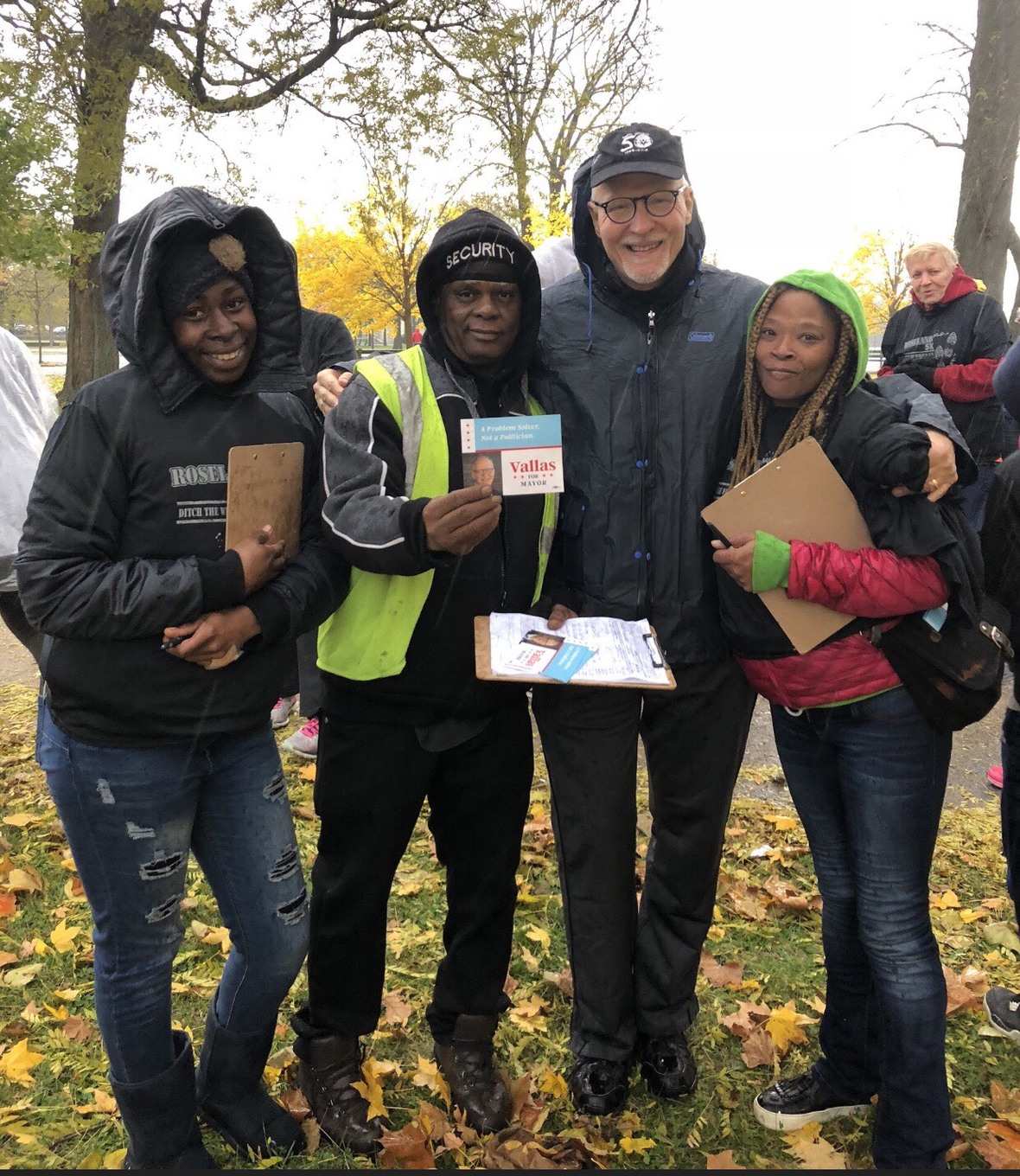
You have served in a variety of positions in education; what would you do to insure a great education for all CPS students?
As mayor, I will bring to CPS the long-term financial planning model necessary to ensure long-term financial stability and to guarantee that every school has the resources and support needed to be effective educational institutions and community support centers. I will expand high quality school choices by increasing quality education options in every school.
This includes ensuring that students in every neighborhood high school are provided full access to AP courses, Dual Enrollment and Early College, and placing magnet-type programs like International Baccalaureate in neighborhood schools. Expanding high quality educational programs and options in neighborhood schools makes these schools more attractive.
This improves student enrollment and average daily attendance, which generates more state and federal money for the school district. Making programs attractive makes schools attractive, which draws in students and results in more money for the district.
I will implement proven strategies that will eliminate the achievement gap, such as a universal Pre-natal to the Classroom program, ensuring that all the schools have access to and training on superior curriculum instructional models and having an extended day and extended year program that increases the amount of time available for data-driven academic interventions.
I will also ensure that all neighborhood high schools provide career and technical education and paid work-study opportunities for their juniors and seniors; that the high school-based student business and entrepreneurship programs help promote student business start-ups, and that ideas that prospered during my tenure as CEO of CPS are restored. I will also make the changes and improvements needed to ensure that every school is a modern, safe and superior learning center.
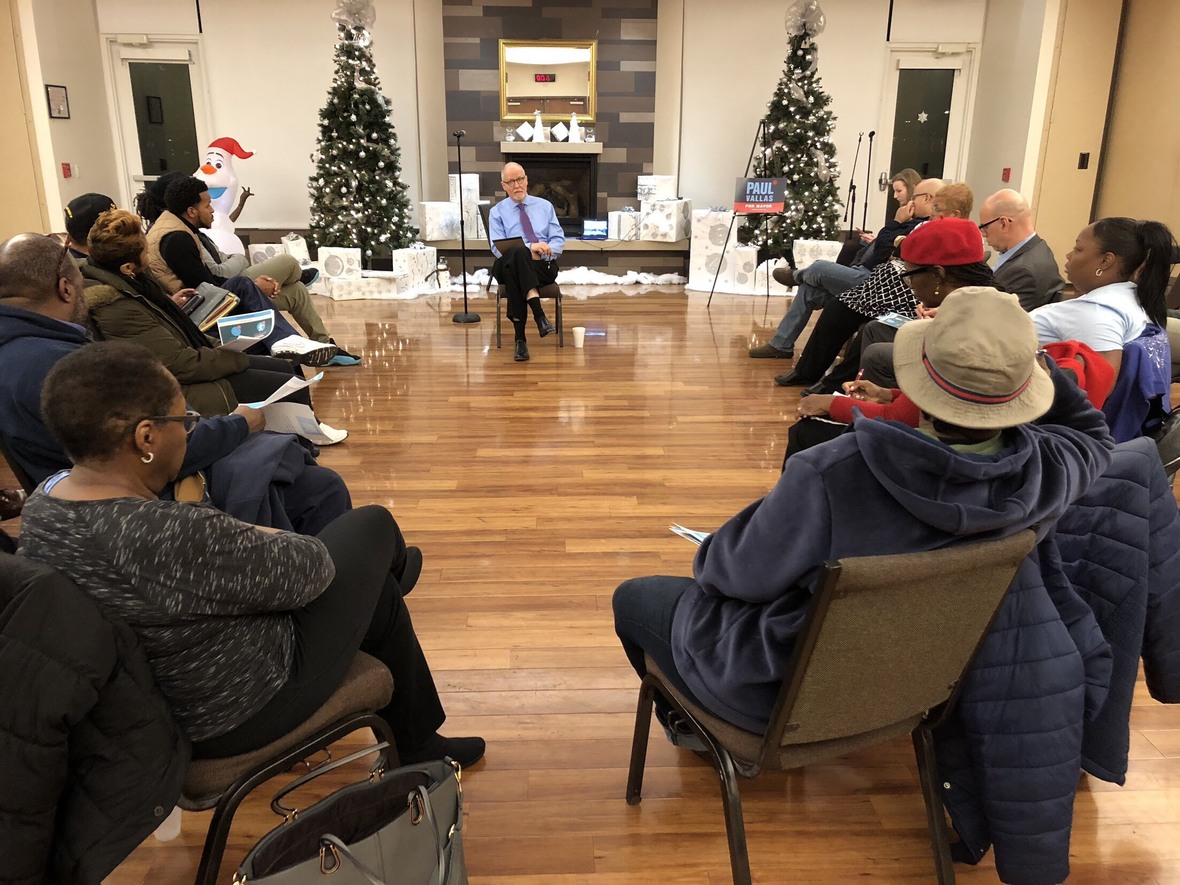
Who would be in your cabinet?
As school superintendent, my cabinets have always reflected the communities they serve and will do so when I am mayor. At CPS, 75 percent of my cabinet was African-American and Latino and two-thirds of my cabinet was women. Also, in each of my school districts, I identified individuals of quality from within the school district and the community at large that I have brought into my administration. This has been my practice as School Superintendent; this will be practice as a mayor now.
Given my almost two decades of managing multi-billion-dollar budgets, I have a cadre of the smartest municipal and governmental finance people in the country, many of whom have gone on to become CEOs in their own right. My ability to draw from experts with great experience and accomplishment is unparalleled. I will draw upon those experts to participate on my transition team and to help support my cabinet.
I will implement an economic development strategy that will prioritize the areas of the city that have gone decades without significant investment. I have referred to it as the ‘Marshall Plan for Chicago.’
Specifically, name three things you would do to improve “living” in the City of Chicago.
It goes without saying that making neighborhoods safer is a number one priority. It is critical for stabilizing neighborhoods and for neighborhood growth. Thus, I have outlined a comprehensive plan to rebuild the police department to be more effective, and equally important, entirely accountable.
That said, we have got to address the quality of life issues in our communities that impact everyone. These are the things that I will do to improve living conditions in Chicago and to create conditions for community prosperity and growth.
I will make neighborhoods affordable by capping local property taxes and fees, eliminating the red-light cameras and dramatically expanding affordable housing by removing obstacles to the conversion of unimproved space to garden units. This could create upwards of 150,000 affordable apartments. I will also turn over the tens of thousands of unoccupied residences to local, community-based organizations and developers for restoration and re-occupancy.
I will implement an economic development strategy that will prioritize the areas of the city that have gone decades without significant investment, particularly in those areas that have been in a literal state of depression for the last 30 to 40 years.
This economic development strategy, which I have referred to as the “Marshall Plan for Chicago,” will take advantage of the Federal Opportunity Zone (FOZ) programs. My plan would set aside one-third of all Tax Increment Financing revenues for the South and the West sides.
It would prioritize spending the $20 billion in revenues that the city controls (city, schools, park district, airports, CHA, CTA), in ways that promote Chicago businesses, minority businesses, and minority hiring. That economic development strategy includes restoring the strategies that contributed to dramatic school growth during my tenure as CEO.
Specifically, it would focus on re-establishing schools as education and community centers, and expanding neighborhood school-based magnet programs to help boost enrollment. I will also restructure high school course offerings to include neighborhood-based occupational training and work-study programs in order to provide students with school-to-work experience.
And I will re-open neighborhood schools as adult education and occupational training centers that can target 18-50-year-olds who are chronically unemployed, high school drop-outs, and previously incarcerated.
I will make infrastructure investments that prioritize improving infrastructure in the poorest communities, including the replacement of lead pipes. My economic development strategy will embrace the concept of environmental justice to stop the practice of moving pollution-generating enterprises to the poorest areas of the city and relocating existing pollution-generating businesses to areas away from neighborhoods.
What would you do to solve the pension problem?
While it would be ideal for a “grand compromise” to be reached with labor, state and local governments and the business community to amend the constitution, it is unlikely to happen even if Governor Pritzker had not voiced his opposition to such an amendment. As for changing the benefits for new employees, that has already been done.
Employees hired after 2010 became Tier 2 pension participants at far lower benefits. Tier 2 employees contribute much more than what it takes to pay their own benefits and are in fact subsidizing Tier 1 retirees. This in itself could create future legal problems. It is highly unlikely there would be support for a further diminishing of new employee future pension benefits under a “Tier 3”.
I have presented a very detailed comprehensive plan to enable the city to meet its pension funding obligations, structurally balance the budget, reprioritize the budget to ensure investment in the community and cap annual property tax increases on individual homeowners, landlords and businesses to the rate of inflation or five percent, whichever is less.
The plan also eliminates the speed and red-light cameras while capping fines to no more than the cost of the fees. The plan includes supporting a legislative agenda that protects the statutory local government share of any increase in the state income tax, restores the illegal diversion of corporate personal property tax revenues and phases in over 10 years full state funding equity for Chicago teachers.
This agenda alone will cover more than half the funding needed to complete the statutory pension-funding ramp up. The balance can be achieved through budget efficiencies and effective financial management.
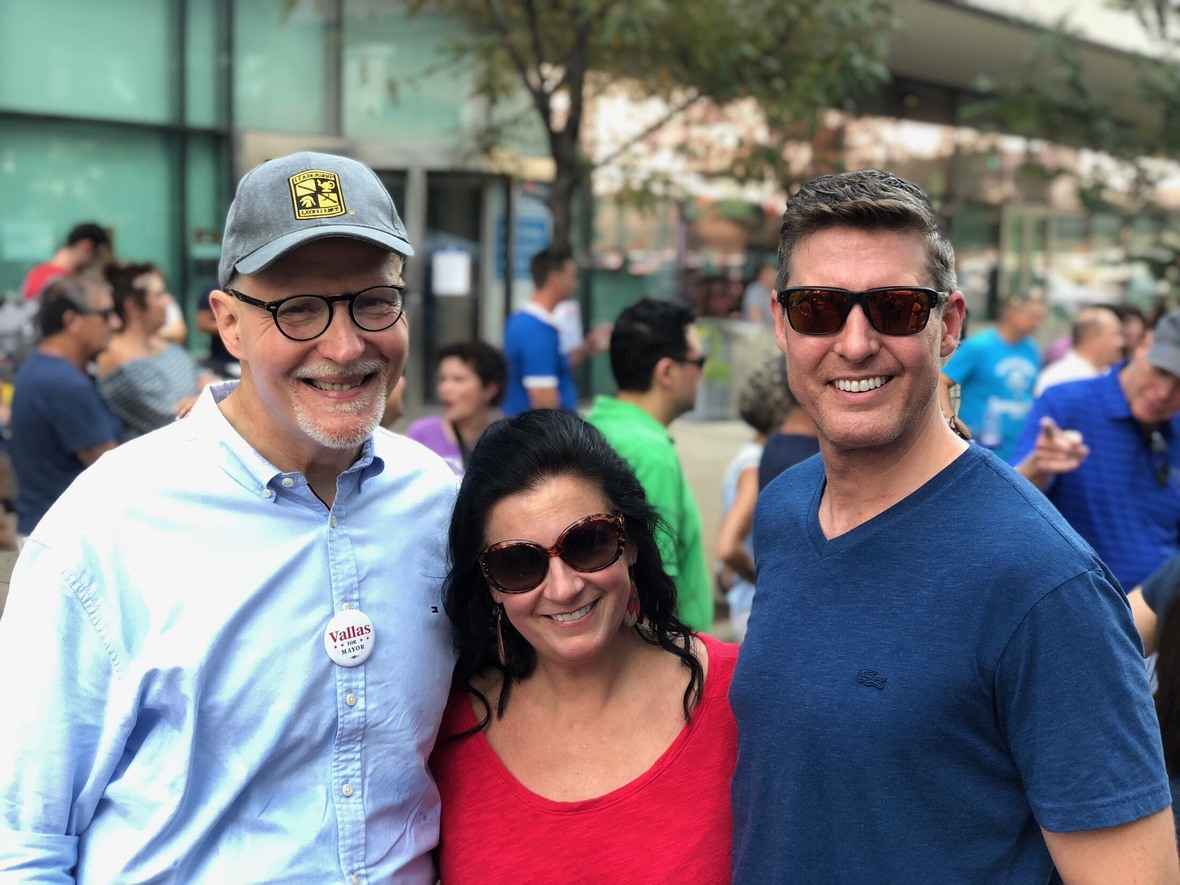
What are the greatest problems of Chicago that you would tackle?
I will wage a war against violent crime to make Chicago’s neighborhoods safer by getting violent criminals off the streets. I will also invest in Chicago and prioritize long-neglected areas of the city to create economic opportunities and bring jobs to ALL of the city’s neighborhoods.
I will ensure that all children have access to high quality schools that are safe and secure and implement a long-term financial plan that will solve the city’s financial problems, while capping property taxes and fees and reducing fines that are punishing families and small businesses.
How would you insure that city contracts are distributed equally?
I will follow the same guidelines that I used when I was CEO of the Chicago Public Schools. Under those guidelines, I set and enforced goals requiring that 50 percent of all construction contracts go to MBE/WBEs and that 50 percent of all hiring be minorities and that 50 percent be city residents.
I exceeded those goals – 54 percent of the contracts went to minority-owed businesses; there was 58 percent minority hiring and 52 percent hiring of city residents. I also set unprecedented goals for professional service providers. I believe those goals were 35 percent and I exceeded them. I believe we awarded over 40 percent to professional service providers.
I also instituted and implemented target marketing, where I awarded contracts exclusively to minority companies, specifically to Black-owned companies. I not only set up the goals, but I created a mechanism to help facilitate reaching those goals.
I provided the insurance to minority contractors so they could access affordable insurance so that they can compete for the work. I also created a mechanism that brought minority contractors together and job fairs to facilitate the hiring of minorities. During my six-year tenure, $1.74 billion went to minority companies and $1.78 billion went to minority workers.
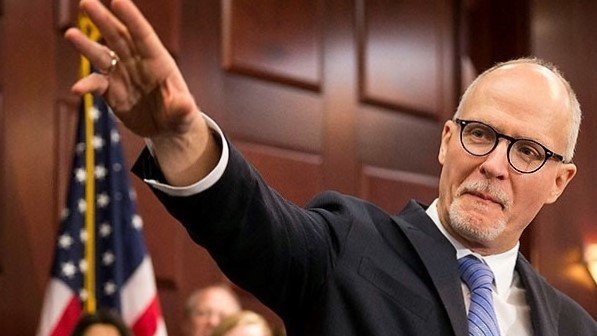
What’s your favorite TV program?
I do not watch TV; I prefer movies.
What would you continue that your outgoing predecessor Rahm Emanuel started?
I will aggressively grow and support the tech sector in Chicago, and support the growth of the Array of Things (see: https://arrayofthings.github.io/index.html).
If you were trapped on a desert island, what three things must you have?
A Swiss Army knife, a notepad, and a pen.
Who would you most like to meet and have dinner with?
While I certainly hope I meet Jesus one day, but I think I’d like to postpone that until it’s time to meet my maker. Therefore, short term I’d like to meet my grandfather, who came to Chicago all alone in his teens with $75 in his pocket in 1905 to find opportunity. I would ask him how he found the courage and drive.
What’s the first thing you would do on your first day as Mayor of the City of Chicago?
I will call back 500 to 600 retired detectives or police officers with investigatory experience to supplement our Detectives Division and to get violent criminals off the street. I will hold an open house at City Hall for anyone and everyone in the city to come meet their new leadership and make a comment, and I will stay as long as it takes for folks to pass through.
I did not call my campaign “Vallas for All Chicago” as window dressing. People who feel excluded, invisible, or marginalized will be invited into the city’s seat of power to celebrate that the city is finally going to start working for them.


